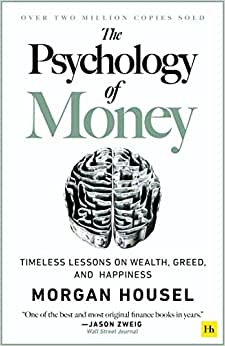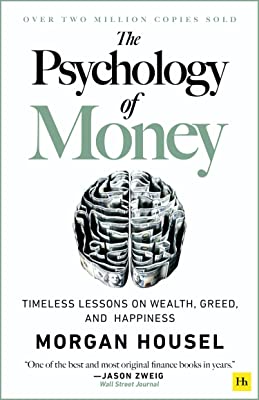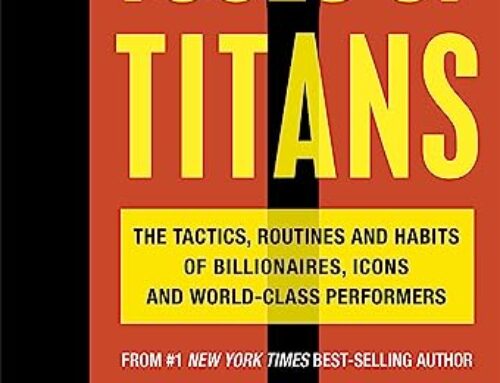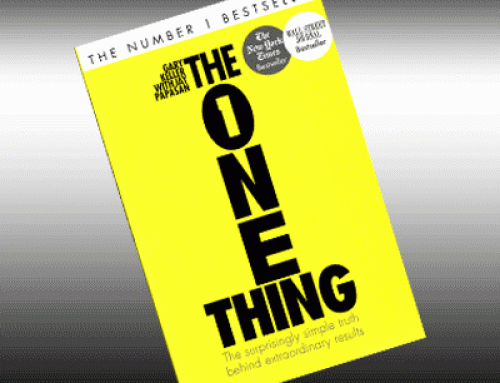Today we exploring the intricacies of behavior and wealth in a review of “The Psychology of Money” by Morgan Housel
Introduction
Understanding the complicated relationship between psychology and money is becoming increasingly crucial in a world where financial decisions have a significant impact on our lives. The Psychology of Money by Morgan Housel is an insightful book that explores the complex forces that influence our financial behavior. Housel tells a compelling story that challenges conventional wisdom and offers a new perspective on wealth and its psychological aspects using a combination of storytelling, research, and personal insights. In this review, we discuss Housel’s book’s major ideas, insights, and points of strength, along with a detailed evaluation of how it will affect readers.
Theme 1: Human Behavior and Financial Achievement
The idea that human behavior, rather than intricate financial strategies or sophisticated investment techniques, is what ultimately determines successful money management is one of the book’s main themes. Housel emphasizes that while having a basic understanding of finances is important, our beliefs, emotions, and biases have a much bigger influence on our ability to manage our money. Housel encourages readers to consider their own financial practices and promotes a more mindful approach to money management by examining various psychological phenomena such as the impact of prior experiences, the importance of patience, and the role of adaptability.
Theme 2: The Benefits of Thinking Long-Term
The importance of adopting a long-term perspective when it comes to accumulating and protecting wealth is emphasized in “The Psychology of Money.” Housel gives examples of how crucial elements of successful investing include compounding, time spent in the market, and the capacity to withstand short-term volatility. Using engrossing anecdotes and historical examples, he emphasizes the importance of time, reiterating the notion that achieving financial success frequently calls for restraint, patience, and an eye toward the long term.
Theme 3: The Impact of Risk and Luck on Financial Results
By highlighting the significant role that luck plays in our financial outcomes, Housel challenges the conventional narrative surrounding wealth accumulation in this book. He argues that factors such as timing, geographical location, and socioeconomic circumstances significantly influence one’s financial trajectory. Housel promotes humility, dispels the idea of invincibility, and exhorts readers to take a more practical and grounded approach to financial planning by acknowledging the role of luck.
The book’s ability to combine compelling storytelling with illuminating research and analysis is one of its strongest points. He makes complex financial concepts and psychological principles understandable by using concrete examples and relatable anecdotes. It is easier for readers to understand abstract concepts and draw connections between psychology and finance when thought-provoking analogies are used, such as the “widowhood effect” or the “Bill Gates’ neighbor” analogy.
When it comes to being useful, “The Psychology of Money” excels, giving readers tips they can put into practice to manage their money well. While taking into account each person’s particular situation and personal preferences, Housel examines issues like budgeting, risk management, and the value of savings. Housel emphasizes the significance of matching our financial behaviors with our personal values by providing examples of how financial decisions can affect our lives, relationships, and general well-being.
The exploration of the connection between psychology and wealth in “The Psychology of Money” by Morgan Housel is perceptive and thought-provoking. A compelling narrative that questions accepted beliefs about money management is produced by Housel’s inventive combination of storytelling, research, and personal insights. Housel offers readers a new perspective on personal finance by highlighting the importance of human behavior, long-term thinking, and acknowledging the role of luck. This book is an invaluable tool for anyone looking to make better financial decisions, understand their own money psychology better, and ultimately live a more financially fulfilling life.
#bookoftheday #money #learning #educli





